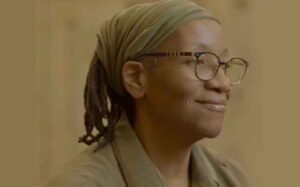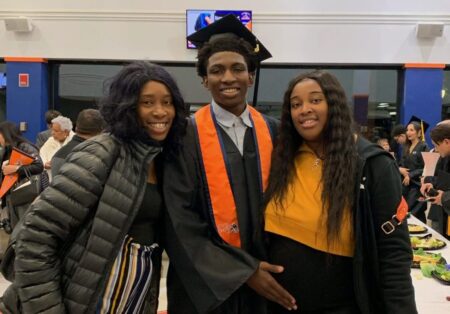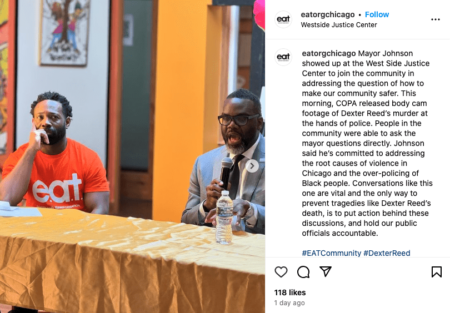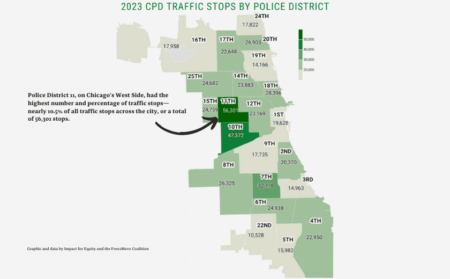Content warning: Graphic descriptions of physical and sexual abuse
When James McIntyre advocates for queer kids facing abuse and neglect in the state’s foster care system, he draws on painful personal experience of his own time in the system—and the abuse he endured. McIntyre was only three years old when his parents’ drug use and neglect forced Illinois child protection authorities to place him and his four siblings in foster care. A couple eventually adopted him and two siblings years later, but that home wasn’t the solace he was promised.
He tells the Reader that after he turned seven years old, his adoptive mother would beat and starve him. And her biological son raped him for years. After escaping that home by feigning mental illness, McIntrye says he was shuffled between foster homes until he turned 21 and aged out of the system.
Amid all the trauma and abuse, McIntyre says being gay made his circumstances even worse. From the state’s Department of Children and Family Services, from foster agencies, and from foster families themselves, he says he was routinely told to hide the fact that he was gay. “Being gay was seen as a safety risk,” he says. “And so instead, they force the gay kids in the closet and say, ‘We don’t have any gay kids.’ Because then it would be seen as an unsafe situation to acknowledge that one of their kids is gay.”
In February, the state’s auditor general reported that the Illinois DCFS failed in myriad ways to adequately care for LBGTQ+ kids. The report found “a lack of reliable and consistent information regarding LGBTQ youth in the care of the department” and “a lack of monitoring and oversight of private agency compliance” with its policies and procedures related to LGBTQ+ youth.
McIntyre, 30, now does community outreach work for Court Appointed Special Advocates of Cook County, which advocates for children experiencing abuse and neglect. And though he’s an out and proud gay man today, he says the effects of being forced in the closet still linger.
“I mean, I don’t feel connected to the gay community because I was not able to express who I was and build those relationships,” he says. “No one taught me gay history or nobody taught me like where we’ve came from, as a group of people, or in the struggles of the community because that type of exploration wasn’t allowed.”
But even now, McIntyre says he still hears stories from LGBTQ+ youth in the foster system that are all too familiar.
The 16 recommendations in the auditor’s report mostly target the agency’s lack of enforcement and oversight of its policies related to LGBTQ+ youth, known as Appendix K. But the report also states that the agency has no formal process for identifying LGBTQ+ youth, with housing placement practices being similarly opaque.
“The number of LGBTQ youth in care provided by the department is only a fraction of the possible population as predicted using available literature,” the report states. “Therefore, any comparisons between these youth and all youth in care may be skewed and inaccurate.”
Poor data collections hampered auditors’ ability to make more specific findings about the number of transgender youth referred to transition-related health care, the number of youth who took advantage of LGBTQ+ affirming services, and the experiences of LGBTQ+ youth who reported violations of DCFS policies, the report states. Additionally, the audit states that the agency’s previous LGBTQ+ coordinator position was vacant for more than a year between 2017 and 2018 before it was eventually eliminated in June 2020.
In a response from DCFS included in the report, the agency said it was in the process of implementing changes and reviewing its current practices.
In a statement provided to the Reader, the agency said that it has taken “aggressive measures to improve the services and care provided to LGBTQI+ youth since the time period covered by this audit.” A representative for the department says the audit additionally doesn’t reflect the current state of the department, as it uses data mostly from 2017 and 2018.
ACLU of Illinois staff attorney Ghirlandi Guidetti says the agency has the right policies in place after updating them in May 2017; it’s just a matter of implementing these policies.
“Largely, their identities are ignored,” Guidetti said of LGBTQ+ youth in DCFS care. “There’s no system-wide ability to collect information about young people’s sexual orientation, or gender identity. There’s then completely inadequate training just to develop cultural competence around working with LGBTQ+ youth.”
Guidetti is a member of a group that formed in 2017 after Appendix K was updated and has pushed for reform of DCFS’s LGBTQ+ policies and procedures. Other members of this roundtable echoed Guidetti’s sentiments and overwhelmingly said that DCFS is simply failing to enforce its policies related to the rights of LGBTQ+ youth.
Renee Lehocky, the director of strategic initiatives at Lawrence Hall, a youth services agency in Chicago, tells the Reader that the auditor’s report confirmed what the roundtable has been telling the agency for years. “[The report] validated all of our discussions we’ve been having through the years, and what we see as private agencies doing this work, not necessarily inside our private agency, but as a state,” Lehocky says. “The thing that worries me most is we have the procedures written, we just have to implement them. I don’t understand where the lag is.”
Members of the roundtable and others pushing for change say caring for LGBTQ+ youth is especially important given how overrepresented they are within the child welfare system—and the unique ways those children interact with and move through the system.
Violence and unaccepting families push many LGBTQ+ youth to leave home. But that lack of acceptance can sometimes follow them to Illinois DCFS, Guidetti and others say, where case workers may misgender them or otherwise add to the anti-LGBTQ+ abuse. Private foster agencies and families who are also unaccepting of LGBTQ+ kids can pile on additional trauma to these children who sometimes face repeated abandonment and a cycle of housing instability tied directly to their queerness.
A DCFS spokesperson tells the Reader that a unit within the agency is also tasked with monitoring residential treatment facilities with which the agency contracts.
In a landmark 2014 investigation, the Tribune uncovered horrific conditions in taxpayer-funded youth residential treatment facilities in the state. The investigation revealed that children sent to these facilities often face assault and rampant sexual abuse, and at the time were fleeing these facilities “by the thousands.”
Many say DCFS has the ability to rein in caretakers who abuse or discriminate against queer youth. The department says it tracks complaints of gender identity and sexual orientation-related discrimination and abuse, but a lack of accessible training hampers those efforts—leaving queer youth without any meaningful protection.
One trans woman who spoke with the Reader says that when she came out as transgender to her family, they “didn’t understand” and eventually left her in a hospital psych ward after she experienced a mental health crisis.
But the state’s protection wasn’t the safe space she was promised. When she finally found housing with a local youth services agency, she says she was put in an all-male residential facility with nearly 50 boys. During the few years she says she spent there, the woman says she faced unending abuse from her peers and staffers alike. “I was harassed,” she says. “I was obviously misgendered all the time. A lot. I was told to kill myself. I was called a faggot, a tranny on a daily basis. In one instance, I was raped [at the facility].”
She says that over the roughly two and a half years she spent there in the early 2010s, agency staff largely ignored her complaints, documenting them but never following up. She says it was likely because some of those complaints focused on staff members themselves. She recalled one instance where a staff member cornered her in a stairwell and threatened to assault her for filing a complaint about him months earlier about a previous threat.
She says she didn’t report being raped out of fear of retaliation from employees at the facility. After she turned 17, she says she was sent to a transitional living placement where she lived in an apartment with one other person. But at that facility, other neighbors would threaten her and kick in her door. Again, she says that her complaints went unanswered.
She says she eventually aged out of the system and into homelessness. “So here I am at 21 years old, with all of my belongings in a storage unit, hopping between two different shelters, a friend’s house, and a tent on the lakefront.”
But activists say her experience is all too common. In fact, many pointed to private foster agencies that are paid by DCFS to house and care for children in the state’s care as the primary source of much of the harm queer kids face in the system, though DCFS and bigoted or poorly trained agency staffers are also to blame, they said.
David Fischer, a consultant who focuses on the justice and foster care systems, says DCFS particularly needs to improve how it cares for youth who are also caught up in the juvenile justice system, especially queer youth whose criminal records sometimes prevent them from changing their names.
“I have heard kids who are locked up in our state, in a juvenile justice system or in detention centers, say that they would rather be there than at their previous placement in DCFS,” Fischer says. “I think that there are a lot of people who care very deeply about children at DCFS, but something is wrong with the system when that is [what we hear] from young people who are supposed to, you know, be in this agency’s protection.”
Roundtable members also pointed to the labyrinthian bureaucracy of DCFS and a revolving door of staffers and agency administrators as an additional barrier to progress. But Ulysses J. Rosales, an assistant public guardian and LGBTQ+ coordinator with Cook County’s Office of the Public Guardian, says making adoption and fostering available to same-sex parents will be especially important if the department wants to serve LGBTQ+ youth as best as possible.
In August 2020, Rosales and more than a dozen others from the office authored a brief to the U.S. Supreme Court in a still-pending case over whether taxpayer-funded private adoption agencies can discriminate against same-sex parents. The brief included numerous stories of LGBTQ+ youth who were severely abused by their previous guardians finding safety and solace in a same-sex household.
“Same-sex couples are often uniquely well-equipped to care for LGBTQ children, many of whom have experienced discrimination and family rejection,” the brief states.
Cook County Public Guardian Charles P. Golbert also wrote a letter to Governor J.B. Pritzker in October, urging the governor to take action to improve the quality of care for LGBTQ+ youth in DCFS protection. The letter urged the governor to fill a newly created chief of LGBTQ+ services position at DCFS and mandate comprehensive training of Appendix K requirements. The agency told the Reader on Friday that the position has recently been filled.
Despite the challenges outlined in the auditor’s report, roundtable members overwhelmingly agree the agency has both made tremendous progress in the past, and has the ability to improve how it treats queer youth in the future.
“I think we can all speak to the fact that, you know, 20 years ago, there was no talk of using appropriate pronouns,” Rosales says. “Things have evolved so much now, and I think there are things in the works. I think DCFS has the intent and will to improve things. But what always seems to happen is things kind of get delayed in the implementation.” v







